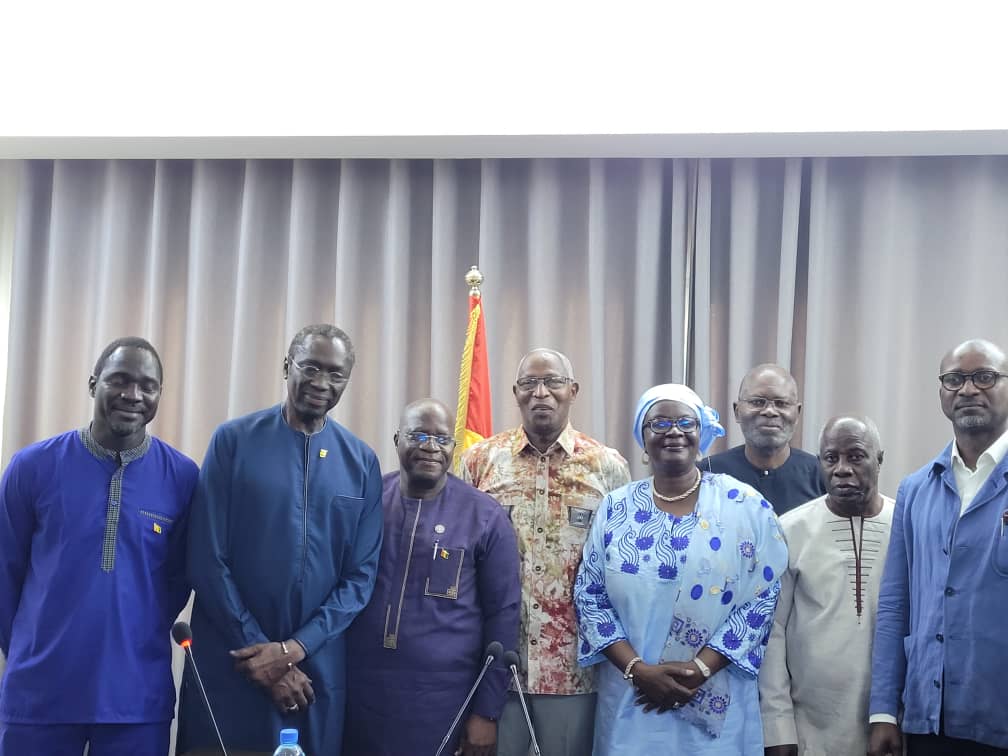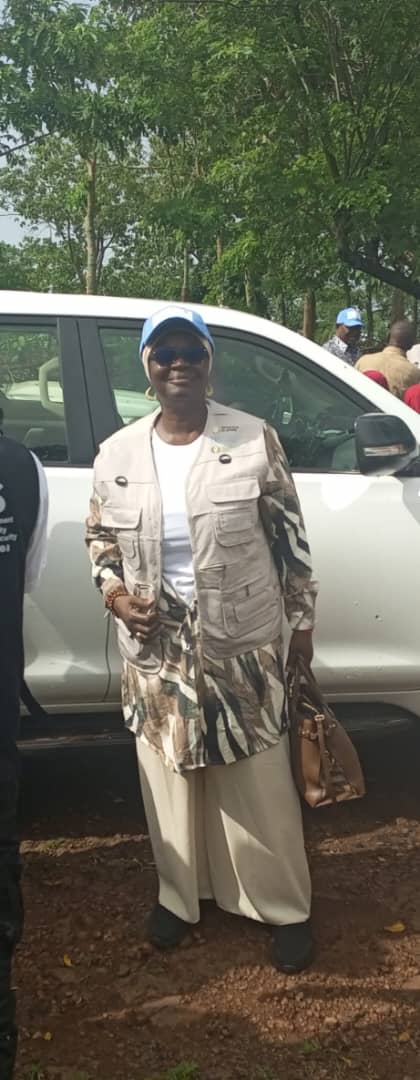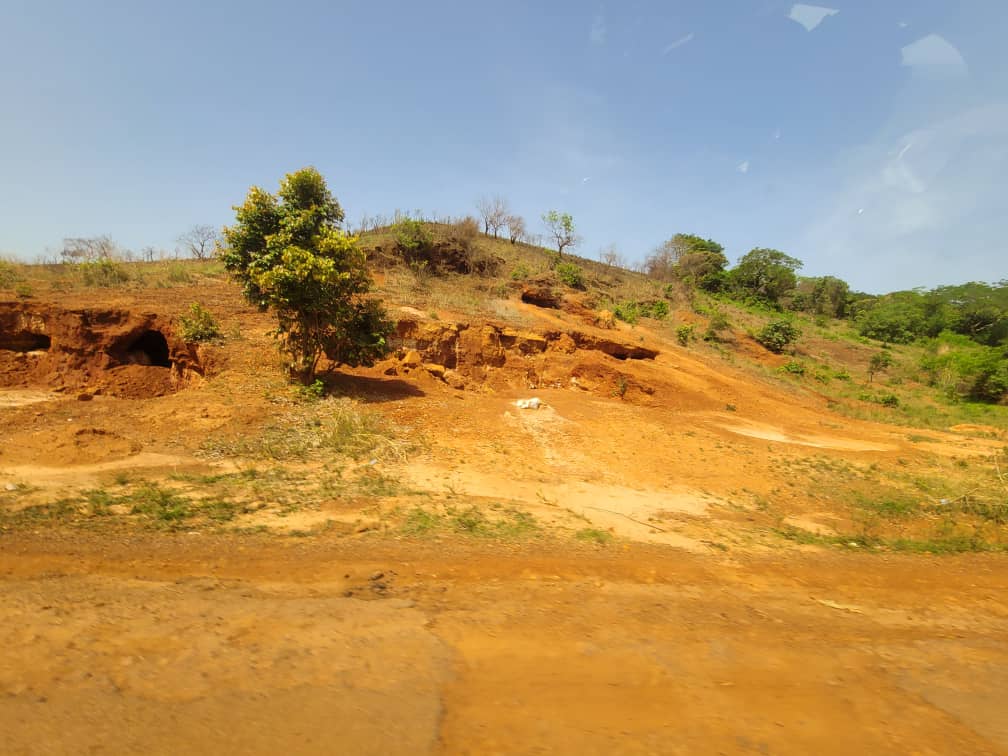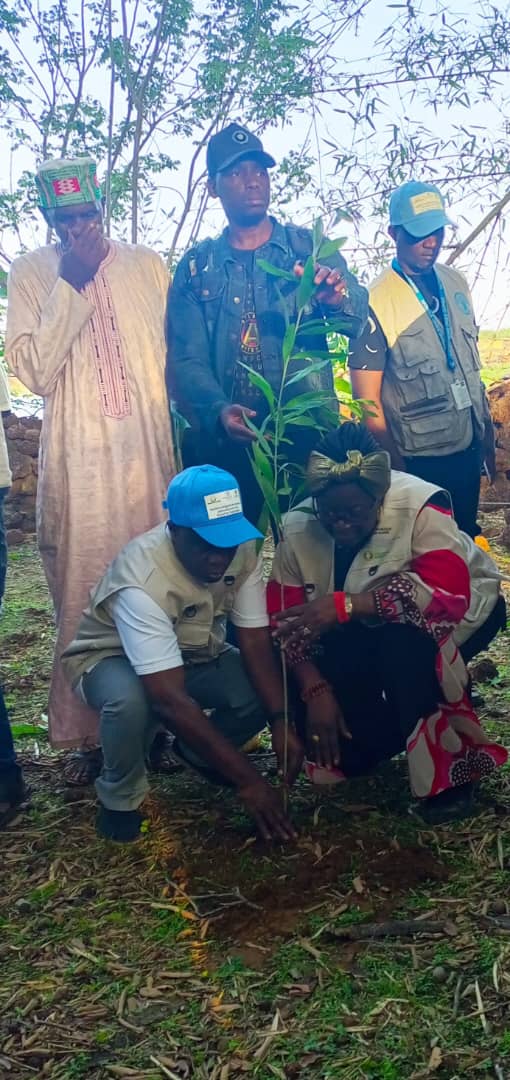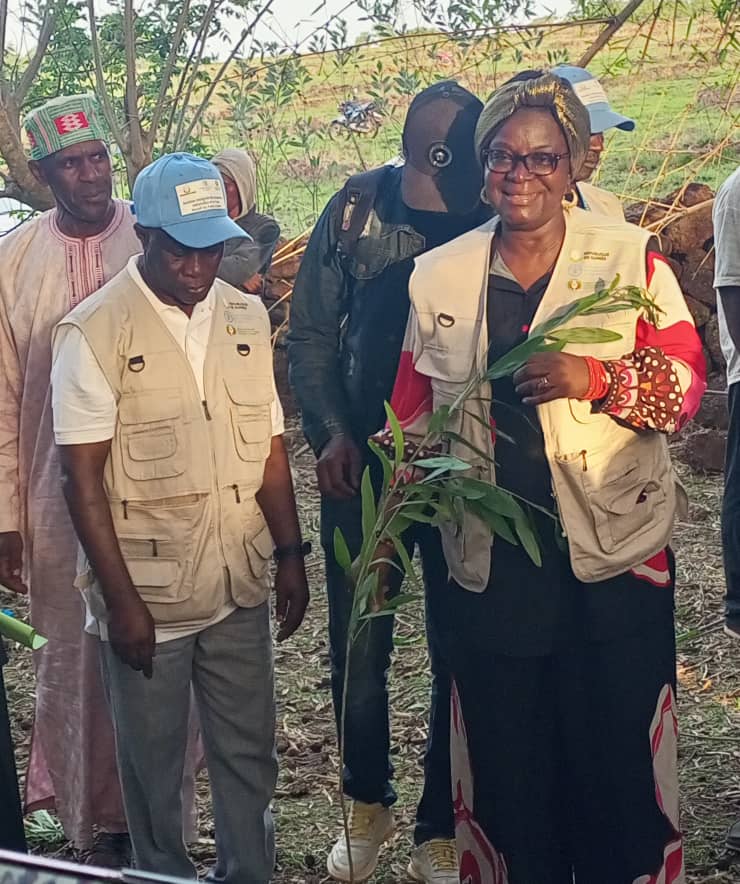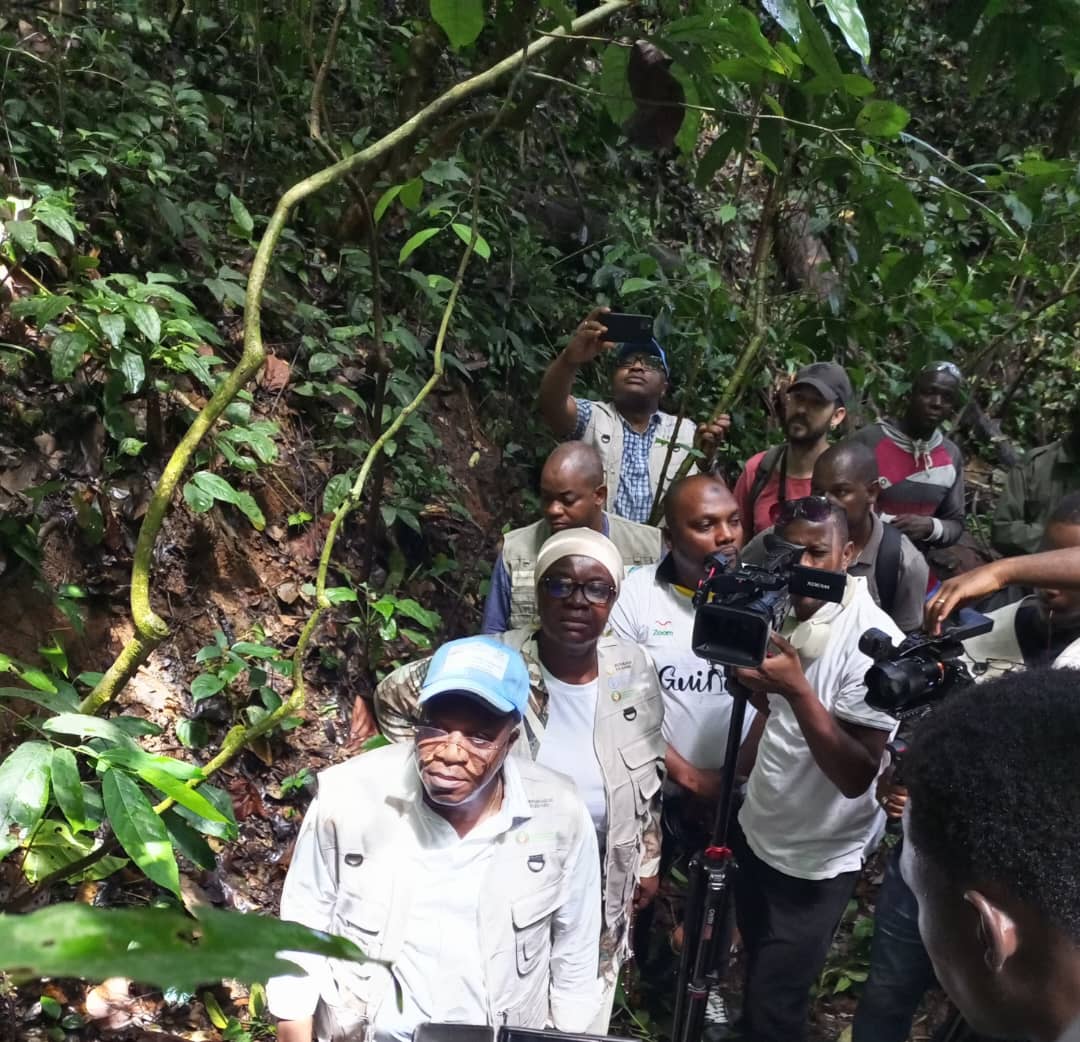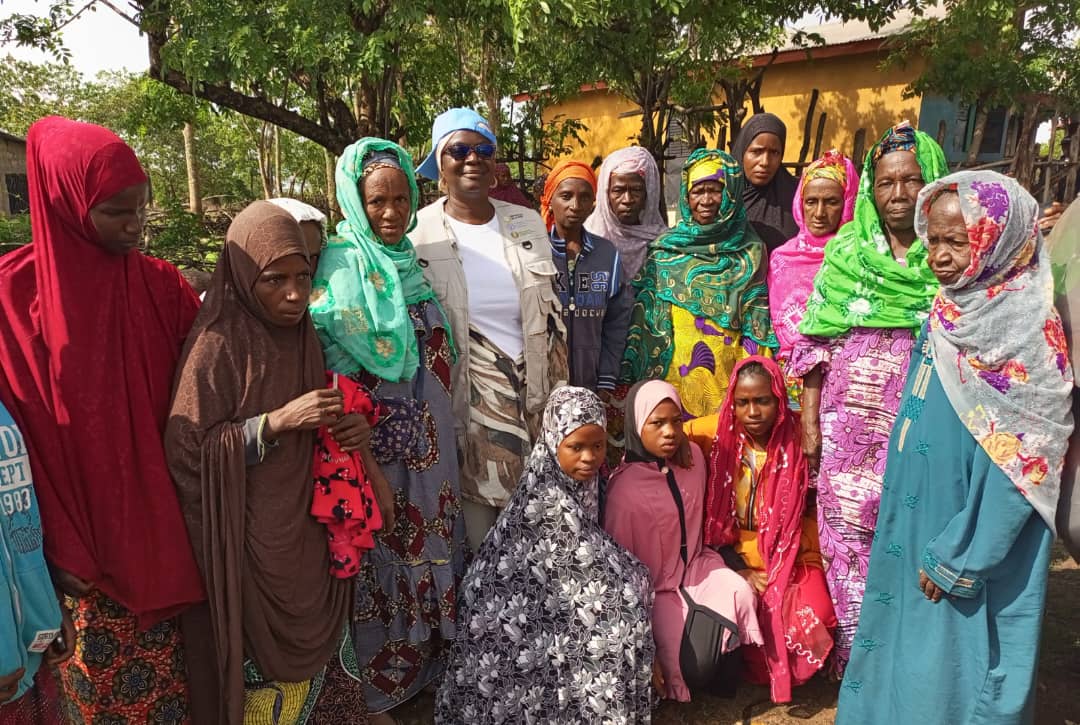A High-Level Ecowas Mission to Guinea to Lobby for The Preservation of The Fouta Djallon Mountains
06 Jun, 2024From 26 May to 02 June 2024, Mrs Massandje TOURE-LITSE, ECOWAS Commissioner for Economic Affairs and Agriculture, accompanied by His Excellency Mr Louis Blaise AKA-BROU, ECOWAS Resident Representative in Guinea and the entire team of the Fouta Djallon Mountains Integrated Management Programme based in Conakry, took part in a high-level advocacy mission to safeguard the Fouta Djallon Mountains.
The initiative, spearheaded by the Food and Agriculture Organization of the United Nations (FAO) in partnership with the United Nations Integrated Strategy for the Sahel (UNISS), the World Food Programme (WFP) and ECOWAS, was warmly welcomed by the highest authorities of the Republic of Guinea. The delegation, which spoke on behalf of the Fouta Djallon Massif through the ‘APPEL DE LABE POUR LA SAUVEGARDE DU MASSIF DU FOUTA DJALLON ET LA GRANDE COALITION SUR L’EAU POUR LE SAHEL’ (LABE CALL FOR THE SAFEGUARDING OF THE FOUTA DJALLON MOUNTAINS AND THE GREAT WATER COALITION FOR THE SAHEL), was made up of the Under-Secretary-General, Special Envoy of the UN Secretary-General for the Sahel, and Coordinator of UNISS, Mr Abdoulaye Mar DIEYE. Abdoulaye Mar DIEYE, the Coordinator of the FAO Sub-Regional Office for West Africa, Mr Robert GUEI, the FAO Resident Representative in Conakry, the Representative of the WFP Regional Office for West Africa, Mr Ollo SIB, all accompanied by a large delegation and representatives of the various Guinean ministries involved in the management of the Fouta Djallon Mountains.
The mission alternated between meetings with the Guinean authorities, field visits and awareness-raising activities among the communities living at the foot of the headwaters of the Fouta Djallon Mountains. The local authorities of the Labe and Mamou regions welcomed the initiative and recalled the many actions already undertaken by the Guinean government.
The fragility of the Massif and the stakes involved in its survival are obvious. Indeed, the accentuated degradation of natural resources and the precarious situation of the populations living there are as many challenges to be taken up to allow the Fouta Djallon Mountains to fully play its role as the source of the main rivers that irrigate our community space and beyond (Senegal River, Niger River, Gambia River among others).
The aim of the advocacy was to draw attention to the advanced state of degradation of the Fouta Djallon Mountains and its impact on the entire West African region, and to the urgent need to take steps to safeguard this natural heritage, which, according to Mr Adoulaye Mar DIEYE, UN Under-Secretary-General and Special Envoy to the Sahel, should be declared a World Heritage Site.
Mrs Massandje TOURE-LITSE, ECOWAS Commissioner for Economic Affairs and Agriculture, reiterated the appreciation of His Excellency Dr Omar Alieu TOURE, President of the ECOWAS Commission, to the Guinean authorities at the meeting with the Prime Minister, H.E. Mr Amadou Ouri BAH, and recalled the commitment of ECOWAS alongside Guinea for the preservation of the Fouta Djallon Mountains since the transfer of the Regional Programme for the Integrated Development of the Fouta Djallon Massif (PRAI-MFD) from the African Union to ECOWAS on 24 October 2018 on the basis of the principle of subsidiarity with the establishment of the Programme Coordination Unit by ECOWAS.
The Fouta Djallon Massif (MFD) is made up of several high basins located in the centre of the Republic of Guinea and extending into Guinea-Bissau, Mali, Senegal and Sierra Leone, with more than 8,000 springs that irrigate more than 1,600 rivers, 13 of which cross borders. This mountain range is the source of several major international rivers in West Africa, including the Gambia River, the Niger River and the Senegal River, as well as numerous other rivers.
Today, this cross-border natural heritage is undergoing accelerated degradation of its natural resources as a result of climate change and human intervention through practices that do not guarantee the survival of biodiversity (slash-and-burn farming, abusive cutting of forests, reduction in vegetation cover, soil erosion, bush fires, and the cumulative effects of climate change, etc.).




